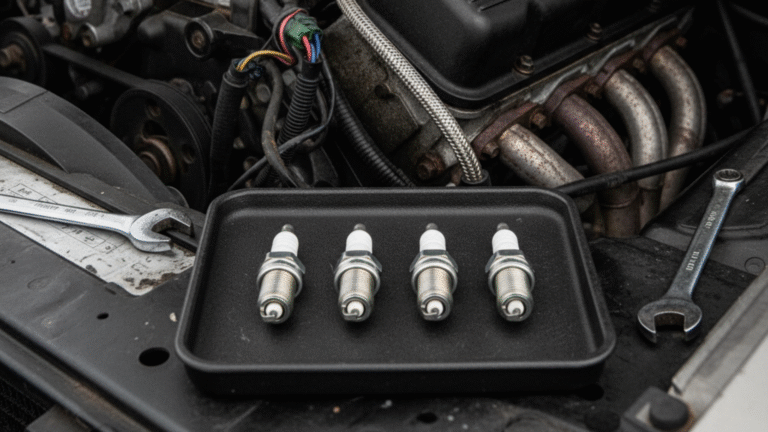
If you’ve ever driven a Jaguar, you’ve probably wondered: Who makes Jaguar engines and where are they produced? It’s a fair question, because engines aren’t just chunks of metal — they’re the heartbeat of every car. Jaguar’s journey with engines is particularly fascinating: the brand went from outsourcing powertrains to finally building its own high-tech units, and now it’s preparing to leave them behind for electric motors.
Jaguar’s Engine Roots: Borrowed Power
For decades, Jaguar relied heavily on engines from other manufacturers, especially Ford during the years of corporate ownership. While practical, this arrangement didn’t exactly give Jaguar the prestige of claiming “in-house power.” That changed in 2008, when Tata Motors acquired Jaguar Land Rover (JLR). With new backing and a vision for independence, Jaguar began plotting its path toward building engines under its own name.
The Ingenium Program and Wolverhampton Facility
In 2011, Jaguar Land Rover introduced the Ingenium program — a bold initiative to design modular, efficient engines in-house. By 2015, the Wolverhampton Engine Manufacturing Centre in the UK was up and running. This plant became the core of Jaguar’s modern engine story, producing lightweight petrol and diesel Ingenium engines for models like the XE, XF, and F-Pace. By 2020, the Wolverhampton site had already produced more than 1.5 million engines.
What stands out is how this gave Jaguar real independence. Instead of relying on borrowed technology, Jaguar finally had engines designed to match its luxury-performance DNA.
China Expansion and Local Strategy
Jaguar didn’t stop at the UK. In 2017, it expanded engine production to China through a joint venture with Chery Automobile, setting up operations in Changshu. The strategy made sense: local production for a booming market meant lower costs and stronger competitiveness. On the flip side, it hasn’t been a lasting move. With Jaguar sales slowing in China and the company pivoting toward an electric future, reports indicate that Chinese engine production is now winding down.
Who Makes Jaguar Engines Today?

So, who makes Jaguar engines and where are they produced right now? The short answer is Jaguar Land Rover makes them, with Wolverhampton in the UK serving as the primary hub. The Ingenium range continues to power models across the lineup, from luxury sedans to sporty SUVs. For drivers, this means improved efficiency, reduced emissions, and performance that finally feels “Jaguar” in spirit.
Jaguar’s Electric Transition: The Next Chapter
Now here’s the twist: Jaguar is preparing to go all-electric between 2025 and 2030. This means the Ingenium program could represent the final generation of Jaguar-made combustion engines. On one hand, it feels bittersweet for traditional enthusiasts. On the other, it’s an exciting chance for Jaguar to reinvent itself without the baggage of outdated powertrains.
From a practical standpoint, electric drivetrains actually fit Jaguar’s brand quite well. Instant torque, quiet refinement, and simplified mechanics all line up with the promise of effortless luxury. In my view, this move could position Jaguar ahead of rivals who are slower to commit to a fully electric lineup.
The Jaguar F-Pace
Take the Jaguar F-Pace with its Ingenium 2.0-liter engine. It’s efficient enough for school runs and city driving, yet offers that satisfying burst of performance when pushed harder. This balance is what Jaguar’s in-house engines made possible — blending practicality with a sporty edge. It’s a great illustration of why the Ingenium program mattered.
Enjoyed this read? Subscribe now to get more auto & tech insights delivered straight to you.
FAQs
1. Who makes Jaguar engines and where are they produced?
Jaguar engines are made by Jaguar Land Rover, primarily at the Wolverhampton Engine Manufacturing Centre in the UK.
2. Does Jaguar still use Ford engines?
No, modern Jaguars use in-house Ingenium engines. Ford engines were phased out after the Tata Motors acquisition.
3. Are Jaguar engines reliable?
The Ingenium range is considered more refined and reliable than older outsourced engines, provided regular maintenance is done.
4. Did Jaguar build engines in China?
Yes, between 2017 and 2023 through a joint venture with Chery, but production there is being phased out.
5. What’s next for Jaguar engines?
Jaguar plans to transition fully to electric vehicles by 2025–2030, meaning traditional engines will be replaced by EV drivetrains.


